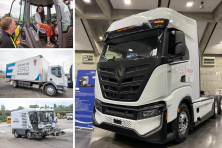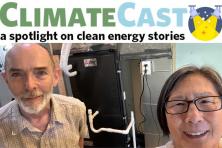Despite leaving significant business on climate unfinished, this year's Oregon Legislature did deliver some wins for climate action. One of these was a bill establishing an ambitious statewide timeline for adopting zero-emission cars, buses, and commercial vehicles.
Oregon has taken significant steps to protect our air, water, food, and homes from climate impacts. However, pollution created by Oregon's transportation sector has increased year after year, and now comstitutes the largest share—40%—of our state’s total global warming pollution. Cleaning up our electrical grid, then using clean electricity to transform our transportation sector, are critical steps we must take to address climate change and achieve Oregon’s pollution reduction goals.
The new transportation electrification law (Senate Bill 1044) builds upon the Clean Fuels Standard, Executive Order 17-21 on Zero Emission Vehicles, the 2017 Transportation Package's electric vehicle incentives, transit and multimodal infrastructure investments, and ongoing efforts to clean up our power grid. The law:
- Establishes statewide goals for adopting zero-emission vehicles, including a target of at least 90 percent of new motor vehicles sold being zero-emission by 2035;
- Requires state agencies to purchase or lease zero-emission vehicles for at least one-quarter of their new light-duty vehicle fleet (with some exceptions);
- Allows school districts to invest in electric school buses and other zero-emission infrastructure with Public Purpose Charge funds collected by utility companies;
- Creates a more efficient process for utilities to help build more public charging stations; and
- Mandates better study and tracking of our statewide progress to reduce transportation-related pollution, including recommendations for reducing barriers to transportation electrification.
We still have a long way to go in cleaning up our transportation sector to address the climate crisis. However, investing now in zero-emission vehicles and clean transportation infrastructure is a vital step in moving us beyond fossil fuels to power our lives.





